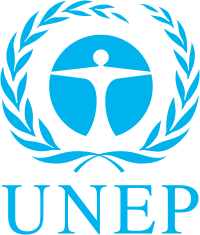
United Nations Environment Programme

Job Description
<!–
Description
–>
Org. Setting and Reporting
The United Nations Environment Programme (UNEP) is the leading global environmental authority that sets the global environmental agenda, promotes the coherent implementation of the environmental dimension of sustainable development within the United Nations system and serves as an authoritative advocate for the global environment.
- The overall objective of UNEP’s Industry and Economy Division is to encourage decision makers in government, local authorities and industry to develop and adopt policies, strategies and practices and technologies that promote sustainable patterns of consumption and production, make efficient use of natural resources, ensure safe management of chemicals and contribute to making trade and environment policies mutually supportive.
- The Division promotes the development, use and transfer of policies, technologies, economic instruments, managerial practices and other tools that assist in environmentally sound decision making and the building of corresponding activities.
- The focus of the incumbent is the implementation, monitoring and evaluation of programmes, operations and other activities related to circular economy of plastics under the UNEP Plastics Initiative.
- The Programme Officer will primarily lead the management of program and projects on plastic pollution funded by the Global Environment Facility (GEF) at national, regional and global level, while supporting relevant projects funded by other donors. This position is located in the Industry and Economy Division, at the Paris duty station.
Under the direct supervision of the Head of the Consumption and Production Unit, the incumbent will be responsible for the following functions:
Responsibilities
- Participate in the development, implementation and evaluation of assigned programmes/projects on circular economy of plastics (especially on program and projects funded by the Global Environment Facility), monitor and analyze programme/project development and implementation, review relevant documents and reports, identify problems and issues to be addressed and proposes corrective actions, liaises with relevant parties, identifies and tracks follow-up actions.
- Research, analyze and present information gathered from diverse sources.
- Assist in policy development, including the review and analysis of issues and trends, preparation of evaluations or other research activities and studies.
- Undertake survey initiatives, design data collection tools, review, analyze and interprets responses, identify problems/issues and prepares conclusions.
- Prepare various written outputs, e.g. draft background papers, analyze, sections of reports and studies, inputs to publications, etc.
- Provide substantive support to consultative and other meetings, conferences, etc., to include proposing agenda topics, identifying participants, preparation of documents and presentations, etc.
- Approach governments, the private sector, academic, and non-for-profit organizations to acquired grants and co-finance to support to design and implementation of projects and activities.
- Prepare progress reports to summarize the achievement and learning of project implementation, and organize project mid-term review and terminal evaluation.
- Undertake outreach activities; conduct training workshops, seminars, etc.; make presentations on assigned topics/activities.
- Participate in or lead field missions, including provision of guidance to external consultants, government officials and other parties and drafting mission summaries, etc.
- Coordinate activities related to budget and funding (programme/project preparation and submissions, progress reports, financial statements, etc.) and prepare related documents/reports (pledging, work programme, programme budget, etc.).
- Collect and analyze data to identify trends or patterns and provide insights through graphs, charts, tables and reports using data visualization methods to enable data-driven planning, decision-making, presentation and reporting
- Perform other duties as required.
Education
- Advanced university degree (Master’s degree or equivalent) in environmental sciences, environmental management, environmental economics, manufacturing, engineering technology, and mechanical engineering, or a related field is required. A first-level university degree in combination with two (2) qualifying years of experience may be accepted in lieu of the advanced university degree. Successful completion of both degree and non-degree programs in data analytics, business analytics or data science programs is desirable.
Work Experience
- A minimum of five years of progressively professional experience in project or programme management, administration or related area on sustainable consumption and production, circular economy, chemicals and waste, and plastic pollution is required. Working experience with both the public and the private sectors is required. Experience of resource mobilization for plastic pollution and circular economy is desirable. Working experience with Umoja modules including Implementing Partners (IP), Business Intelligence (BI), Integrated Planning, Management and Reporting (IPMR) and Enterprise Core Component (ECC) is desirable. Two (2) years or more of experience in data analytics or related area is desirable
Languages
- English and French are the working languages of the United Nations Secretariat. For this post, fluency in English is required. Working knowledge of other UN official languages is desirable. NOTE: ”Fluency” equals a rating of ”fluent” in all four areas (read, write, speak, understand) and ”Knowledge of” equals a rating of ”confident” in two of the four areas.
Source: https://careers.un.org/jobSearchDescription/241517?language=en
<!—
Recommend your friend
<!–
–>
To help us track our recruitment effort, please indicate in your cover/motivation letter where (globalvacancies.org) you saw this job posting.
Related Jobs
-

Customer Service Representative – Ground Transportation
ZIMToronto, ONToronto, ON -

Director of Marketing – Telecoms SaaS and Global Connectivity Platform
LotusFlareToronto, ONToronto, ON- Tender/Procurement
-

Pharmacy Assistant
CencoraOakville, ONOakville, ON- Full Time
-

Sales Assistant
Sunrise Senior LivingBurlington, ONBurlington, ON- Full Time
